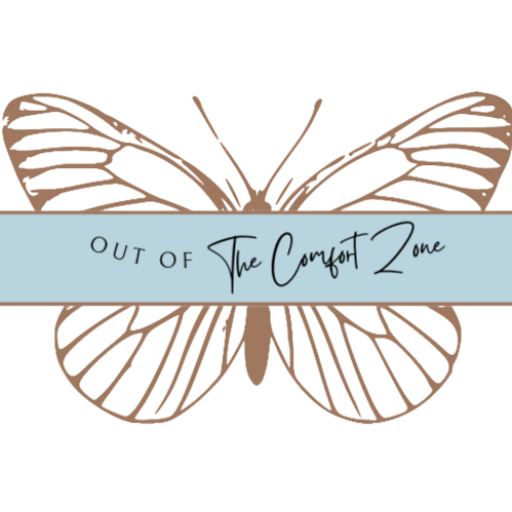Avoiding tourist scams abroad: Red flags to watch for
avoiding tourist scams travel
This post contains affiliate links — if you click through and make a purchase, I may earn a small commission at no extra cost to you. Thanks for your support!
Avoiding Tourist Scams Abroad: Red Flags to Watch For
G’day! I’m Mikki, your friendly, real, solo Aussie traveller, here to chat over a (virtual) latte about something every globetrotter dreads: tourist scams. I’ve wandered through bustling markets in Istanbul, haggled on tuk-tuks in Bangkok and even tried not to look like a million bucks in Milan. Yet scammers, like mosquitos in the outback, find me anyway. So let’s talk about avoiding tourist scams travel – how to spot them, dodge them and keep your adventure on track (and your wallet intact).
—
Why Scams Seem to Be Everywhere
You’re on holiday, right? Sun’s shining, you’ve got a guidebook in one hand and a gelato in the other. Then someone swoops in promising you a “secret tour” of the Colosseum, or a “great exchange rate” for your Aussie dollars. You think, Sure, why not? Next thing you know, you’ve handed over your passport or a fistful of cash and realised you’ve been played.
Scammers know that tourists:
– Glance at their phones, not maps
– Carry passports, phones and cash in one bag
– Are enchanted by “insider deals”
– Hate missing out
So they exploit your FOMO (fear of missing out) and good manners. Let’s learn to spot their tell-tale signs.
—
Spotting the Red Flags
1. Overly Enthusiastic “Local Experts”
Ever had someone approach you with a huge grin and a million-dollar “insider tip”? If they seem too keen to show you around for free or at a “special price,” alarm bells should ring. Gently decline and stick to reputable platforms.
2. Deals That Make You Go “Huh?”
If a tour company offers you an all-inclusive day trip for half of what everyone else is charging, or a restaurant promises three courses and free wine for the price of a coffee, just say no. Scammers often lure you in with shock-and-awe bargains that end up costing you more in the long run.
3. Pressure Tactics and Time Limits
Scammers love phrases like “Today only!” or “You’ve got ten minutes!” Pressure stops you from thinking clearly. The moment someone tells you to act on the spot or risk missing out, take a deep breath, step away and check for legit reviews on Tripadvisor.
4. Unofficial Uniforms and Fake IDs
Ever noticed the guy who seems to work for the metro but is wearing a dodgy green cap? Or the “tour guide” with a lanyard and no name tag? Official outfits and badges usually look… official. If you’re unsure, ask to see credentials and verify through an info booth or recognised help desk.
—
Common Tourist Scams You Might Encounter
Taxi and Ride-Share Rip-Offs
Setting: You step into what looks like a taxi.
Scam: The driver takes the “scenic route,” ups the fare or claims the meter’s broken.
Red Flags: No meter, refusal to use a rideshare app, or insistence on a flat rate that’s way above the usual.
What to Do: Use regulated apps where available, or agree on a price before you hop in. If you want local reviews on taxis, check out Tripadvisor.
Currency Exchange Tricks
Setting: You need local cash.
Scam: “No commission!” “Great rates!” then suddenly a hidden fee appears, or you receive counterfeit notes.
Red Flags: Shady alleyway booths, zero signage about exchange rates or commissions, and vendors who rush you.
What to Do: Use bank ATMs sparingly (yes, there might be fees), or go with reputable bureaus in famous squares. Compare rates online before you arrive. If you plan on staying a while, consider a cheap local e-SIM from Airalo so you can track real-time rates.
Fake Ticket Sellers
Setting: You’re keen to book that museum, concert or cooking class.
Scam: Someone sells you a tattered piece of paper or a PDF that turns out to be bogus.
Red Flags: No official website link, or they won’t accept credit cards.
What to Do: Book through verified platforms like Viator, GetYourGuide or directly on the venue’s website.
The “Friendly Local” Guide
Setting: You’re admiring street art or architecture.
Scam: A stranger pops up, offers a spontaneous tour, then clamours for a hefty tip at the end.
Red Flags: No group, no badge, no online presence.
What to Do: Pre-book a walking tour if you want legitimate guidance. Solo surprise tours are fine, but decide your fee upfront – or better yet, hire someone via a trusted site.
—
Practical Tips to Stay Scam-Proof
Do Your Homework (Seriously)
Before you leave home, read reviews on Tripadvisor, browse accommodation options on Hostelworld or Booking.com, and check trusted travel blogs. If you’re read up, you won’t be starry-eyed and vulnerable.
Keep Valuables Out of Sight
Wearing a camera around your neck or phone in your hand is basically a neon sign that screams “Pick me!” Consider a money belt, a safe in your hotel room, or a cross-body bag you can zip up. Less visible = less chance of being targeted.
Travel Insurance Is a Must
If a scam does catch you off guard, at least you won’t be completely out of pocket. I always go with World Nomads or SafetyWing. They cover medical emergencies, misplaced luggage and sometimes theft.
Maintain a Low Profile
Don’t flash wads of cash, expensive jewellery or high-end tech in sketchy neighbourhoods. If you need to check your guidebook, slide into a café rather than being that person obliviously standing in the middle of a busy square.
Stay Connected
Having reliable internet means you can fact-check on the spot. Grab a local SIM or a global e-SIM from Airalo, and keep a list of emergency contacts and your embassy details handy.
—
What to Do If You Get Scammed
Keep Calm and Assess
First reaction: panic. Second reaction (better): breathe. Figure out exactly what’s happened, how much you’ve lost and what documents you have.
Contact the Authorities
If it’s a serious theft or fraud, head to the local police station. You’ll need an incident report for your insurance claim. If you’re in a non-English-speaking country, ask your hotel to help with translation.
Use Your Travel Insurance
File that claim quickly. World Nomads and SafetyWing both have user-friendly apps where you can upload reports and receipts right away.
Warn Fellow Travellers
Post on review sites, local expat Facebook groups or travel forums to prevent others from falling into the same trap. There’s nothing better than a good ol’ Aussie bit of communal warning.
—
Bonus: Trusted Resources and Tools
Here are some of my go-to services that help me plan smart and avoid the sketchy stuff:
Accommodation & Tours
– Hostelworld for budget stays
– Booking.com for everything from homestays to high-end hotels
– GetYourGuide and Viator for vetted tours
Transport
– Omio or 12Go for train, bus and ferry schedules
Connectivity
– Airalo for global e-SIMs
Insurance
Reviews & Research
– Tripadvisor to compare experiences and prices
—
Conclusion
Look, nobody wants to be the star of a dodgy scam story, right? With a little bit of street smarts, planning and the right resources (a.k.a. those handy affiliate links above), you can keep your travels fun and fraud-free. Remember, it’s not about trusting no one — it’s about trusting the right ones. Now go explore, have a laugh, collect memories, not rip-off tales, and if you do bump into a scammer, you’ll be armed with the know-how to give them the cold shoulder. Safe travels, legends!


